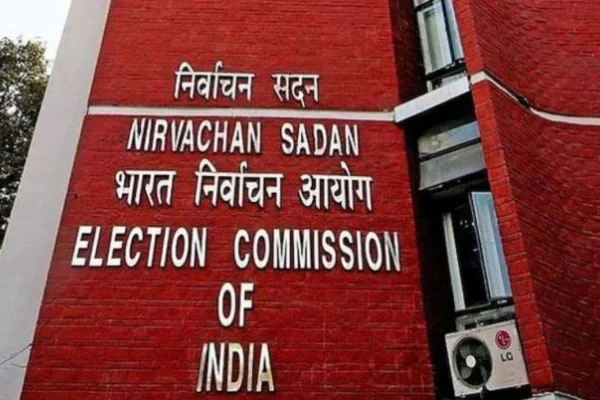Chief Election Commissioner (CEC) Rajiv Kumar recently provided assurance that the Election Commission will disclose all details regarding electoral bonds following the submission of information by the State Bank of India (SBI). Speaking at a press conference, Kumar stated that the SBI had submitted electoral bond details to the Election Commission on March 12, as directed by the Supreme Court.
The Supreme Court had mandated the SBI to furnish details of electoral bonds to the Election Commission by March 12. In response to this directive, the SBI chairman filed an affidavit affirming the submission of data pertaining to bonds purchased and redeemed between April 12, 2019, and February 15, 2024. This development comes after the Supreme Court invalidated the Centre’s Electoral Bonds Scheme in February, which allowed for anonymous funding to political parties. The court had ordered the SBI to cease issuing Electoral Bonds immediately and to provide details about each bond encashed by political parties.
During the press conference, CEC Rajiv Kumar emphasized the Election Commission’s commitment to transparency. He highlighted the Commission’s stance in favor of disclosure, stating that transparency has always been a priority for the Election Commission, both in its operations and in the electoral process conducted by district magistrates. Kumar reiterated the Commission’s dedication to disclosing information to the public and voters.
The Electoral Bonds Scheme had faced criticism due to concerns about transparency and accountability in political funding. The Supreme Court’s decision to strike down the scheme underscored the importance of transparency in political finance. With the submission of electoral bond details to the Election Commission, there is an expectation of greater transparency in the funding of political parties.
The SBI’s affidavit revealed significant information regarding electoral bond transactions. According to the affidavit, a total of 22,217 bonds were purchased between April 1, 2019, and February 15, 2024. Additionally, the affidavit disclosed that 18,871 bonds were purchased and 20,421 bonds were redeemed from April 12, 2019, to February 15, 2024. These figures provide insight into the volume and activity of electoral bond transactions during the specified period.
However, the SBI’s request for an extension of the deadline for disclosing electoral bond details was denied by the Supreme Court. The court dismissed the bank’s application seeking an extension until June 30, emphasizing the importance of timely disclosure. As a result, the SBI was required to provide the information by March 12, aligning with the court’s directive.
The disclosure of electoral bond details is expected to shed light on the flow of funds to political parties and enhance transparency in the electoral process. By making this information publicly available, stakeholders, including voters and civil society organizations, can scrutinize political financing practices and hold parties accountable. Transparency in political funding is essential for upholding the integrity of democratic elections and ensuring that the interests of citizens are safeguarded.
The Supreme Court’s decision to strike down the Electoral Bonds Scheme and mandate the disclosure of bond details reflects a commitment to strengthening democratic norms and principles. It underscores the judiciary’s role in upholding transparency and accountability in governance. Moving forward, the Election Commission’s disclosure of electoral bond details will contribute to fostering greater trust and confidence in the electoral process.
The assurance provided by CEC Rajiv Kumar regarding the disclosure of electoral bond details, coupled with the submission of information by the SBI, marks a significant step towards enhancing transparency in political funding. The disclosure of bond transactions will enable stakeholders to monitor the flow of funds to political parties and uphold the principles of accountability and integrity in democratic governance.
